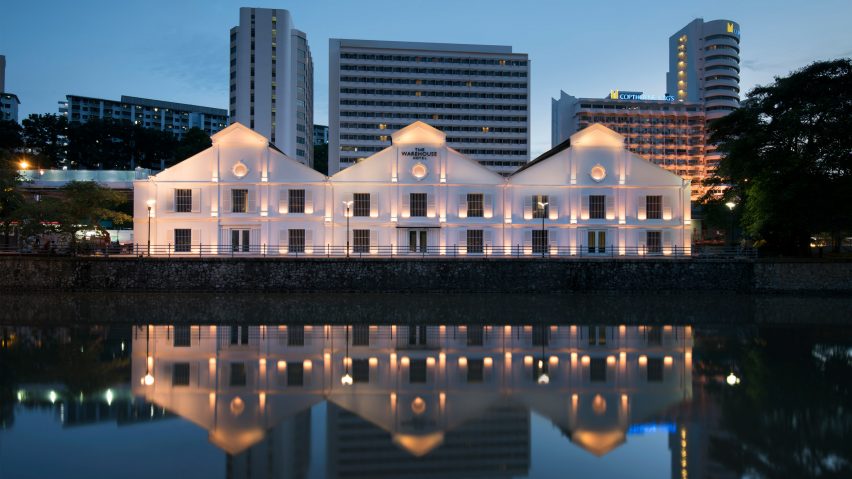
Asylum and Zarch Collaboratives transform Singapore spice warehouse into boutique hotel
Design firms Asylum and Zarch Collaboratives have converted a former spice warehouse on the Singapore River into a hotel, featuring exposed ceilings trusses, brickwork walls and mid-century style furniture.
The Warehouse Hotel occupies a trio of gabled buildings on the banks of the river, which were used as warehouses during the height of Singapore's spice trade.
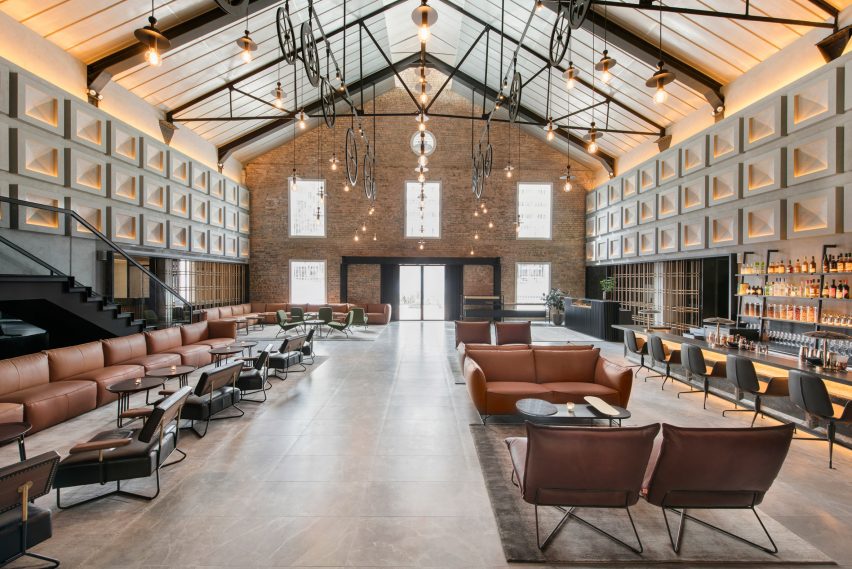
Local architecture studio Zarch Collaboratives and design studio Asylum, commissioned by Singaporean hospitality firm The Lo & Behold Group, chose finishes to reference the industrial history of the building and the culture of the country.
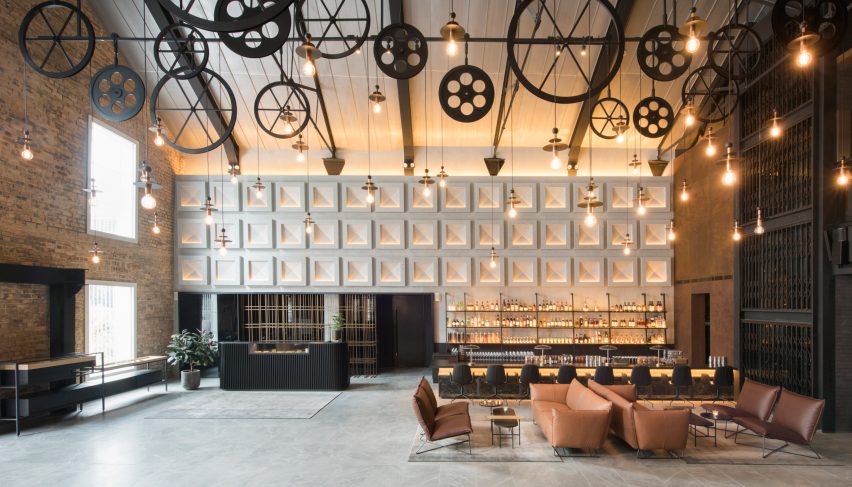
"Our focus has been to protect the property's legacy, while creating a fresh perspective on the term 'industrial'," said Chris Lee of Asylum.
"The environment is warm and sophisticated to prevent it from being too obviously grounded in what has been before," he continued.
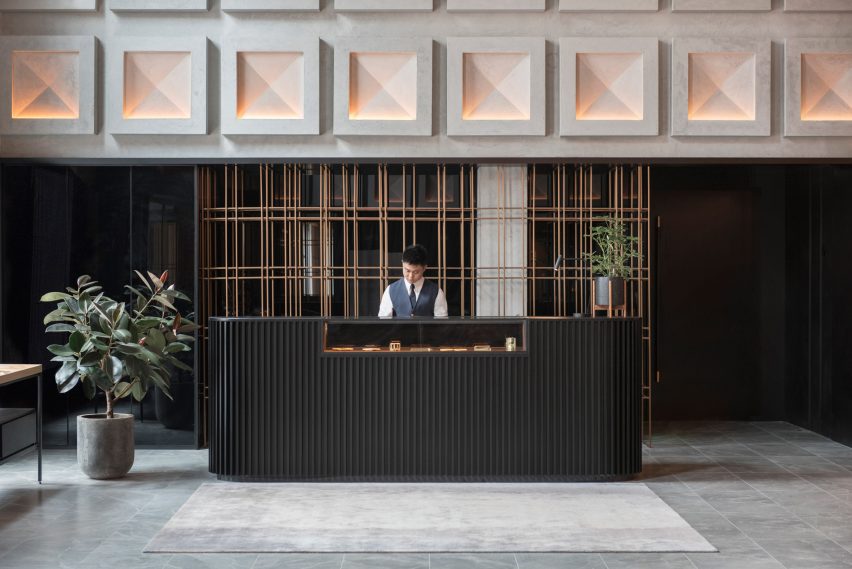
A large existing brick wall remains, the original roof trusses and a black metal gate remain exposed in the open-plan lobby. These are complemented by a white-painted ceiling and grey floor tiling.
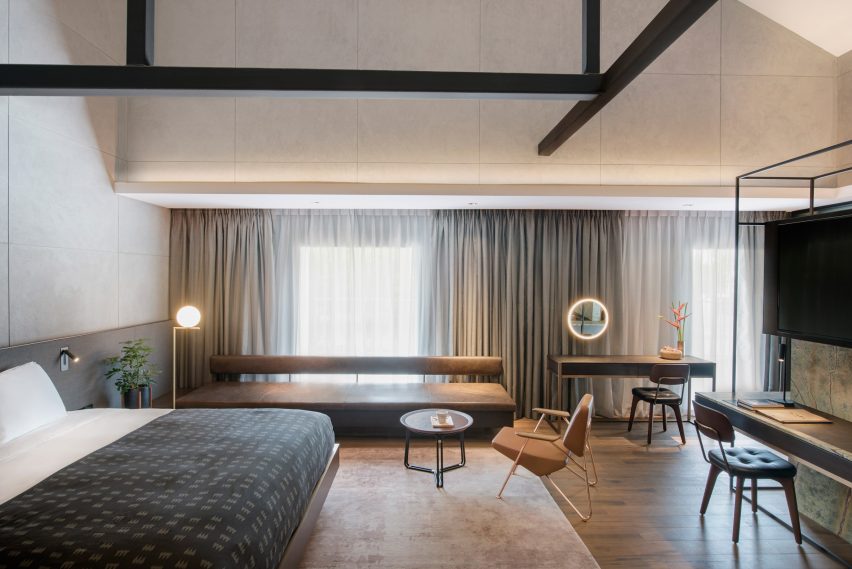
Black cogs and wheels hang from the ceiling to reference machinery, with pendant lights webbed in between.
Other industrial-style features include a black metal staircase and the ribbed reception desk.
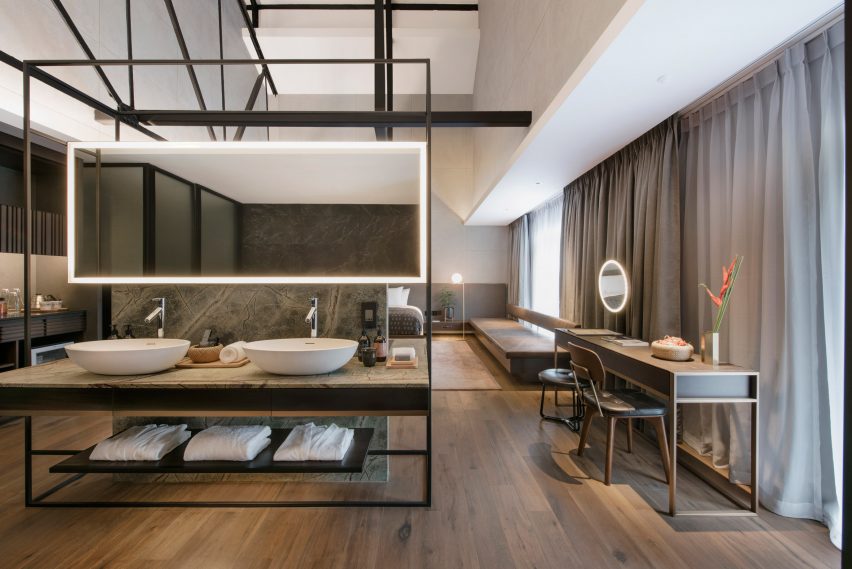
Delicate golden poles screen the spaces that flank the lobby area. The upper portion of the white wall behind the reception desk is decorated with rows of protruding squares, which are emphasised by the lights embedded in their faces.
A long bar with black marble bases occupies one corner of the space, from where guests can drink spice-infused cocktails.
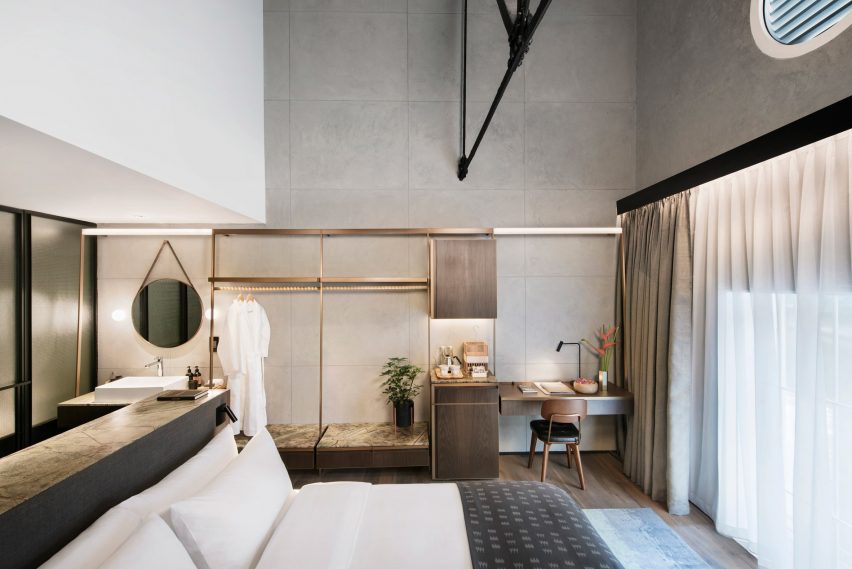
Black ribs from the wall behind the bar provide the frame for shelves filled with alcoholic beverages, while a textured dark brown wall rises beside it.
The rest of the space is furnished with brown leather sofas, and chairs with metal legs and black leather seats. There is also a set of mid-century style green chairs arranged in a group at the front of the space.
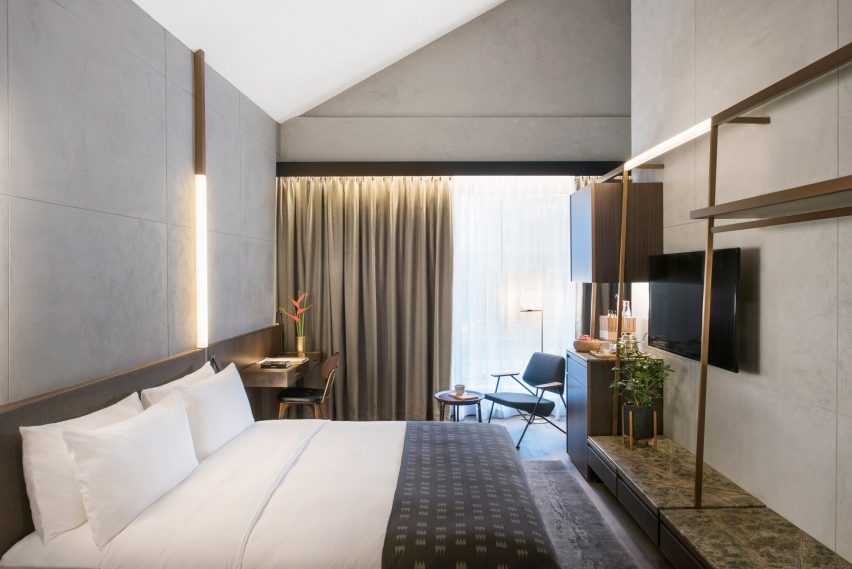
The designers have continued the mixed aesthetic into the bedrooms, where the black ceiling trusses are also left exposed. Neutral finishes used include mottled grey tiles that cover walls and wooden floorboards.
A collection of metal-framed furniture is used in various layouts to accommodate wooden and marble cabinets for wash basins, wardrobes and desk areas in the different rooms.
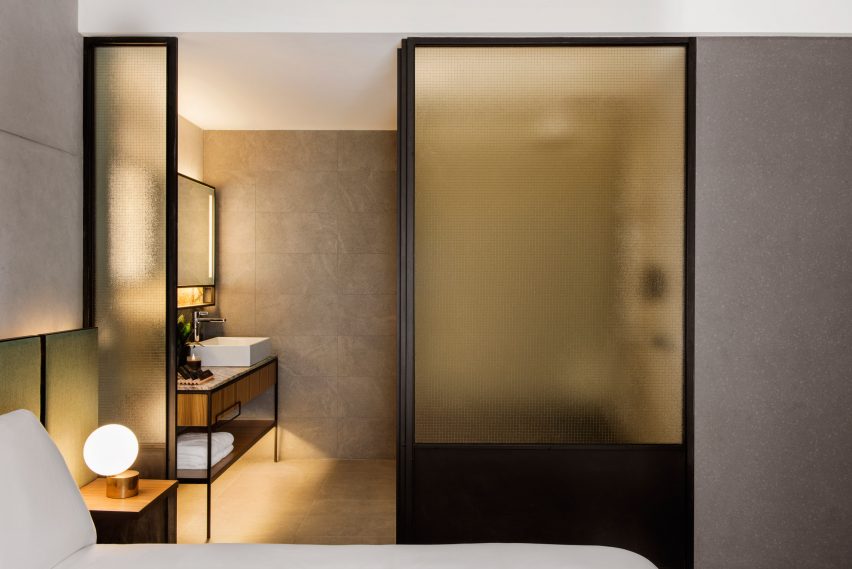
In one of the spaces, a black frame extends from the roof structure to support a marble-topped washbasin and a rack for dressing gowns beneath, while another room features gold metal framework instead.
A further bedroom has a sliding partition with golden-tinged glass that opens to the en-suite bathroom from the bedroom.
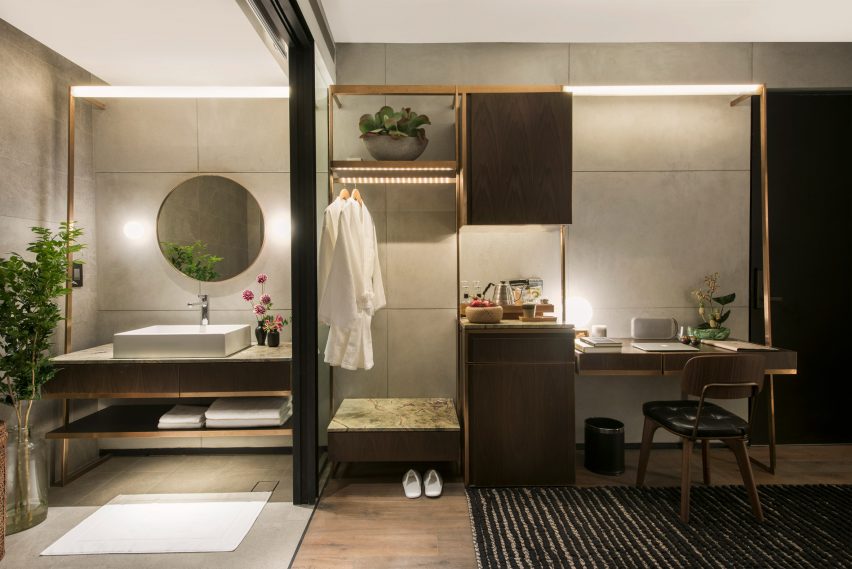
The Warehouse Hotel follows a number of factories transformed for alternative uses.
Other projects include a Shanghai warehouse turned into ceramicist's atelier, a Vancouver factory converted into an ice cream shop and a wooden house into the shell of an old Belgian industrial building.